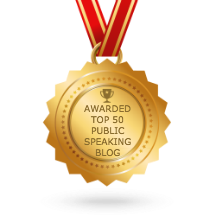People from all over the world come to the US because of the freedoms and opportunities we enjoy in our country. Freedom of speech is among our most cherished and valuable rights which draw ambitious and educated people to our nation.
Houston, Texas is truly a melting pot for professionals especially in the oil and gas, energy, medical and technology industries. Any meeting at one of the companies in these industries will look like a United Nations conclave. You will see professionals from India, China, Viet Nam, Colombia, Venezuela, Peru, Russia and Iraq sitting at the table doing business in English. Many of them will have PhD behind their names.
The global brainpower in Houston is exciting and inspiring. However, there is a struggle that many of these brilliant people face every day. Many of them struggle to be understood easily when they speak English.
Because they are smart people, they speak and understand English well enough. Many learned English in grade school in their native countries. Yet, they often don’t know how to pronounce the sounds of English correctly; and, as a result, their accents sometimes cause their speech to be difficult to understand. A too heavy accent poses a real problem for non-native professionals, their employers and clients. As experts, they need to be understood when sharing their expertise. If not, they lose effectiveness and may even lose confidence in their expertise.
The solution for this challenge is only one thing – learning to speak English clearly. Whether you call it accent reduction, accent modification, diction for foreign-born professionals or proper pronunciation of English, the solution is for non-native speakers to learn how to pronounce enough of the sounds of English correctly so that they can be easily understood when they speak English.
For over three decades, I have been helping non-native professionals learn to speak English clearly. I am not a teacher of English grammar, ESL or vocabulary. I am a voice and diction coach. I simply teach people to articulate the sounds of English that they don’t know how to pronounce. I fell into accent reduction coaching without realizing that was what I was doing. I will tell my story in another blog post, so you can see where my ideas about this area of speech originated.
For now, let me just say that mispronunciation creates a kind of fear about speaking that I help resolve. When non-native professionals feel free to share their ideas, insights and expertise while speaking English with their native accents, the world will benefit. In the coming blog posts, I will share some of my ideas and approaches to help non-native professionals speak English clearly without having to lose their accent.




